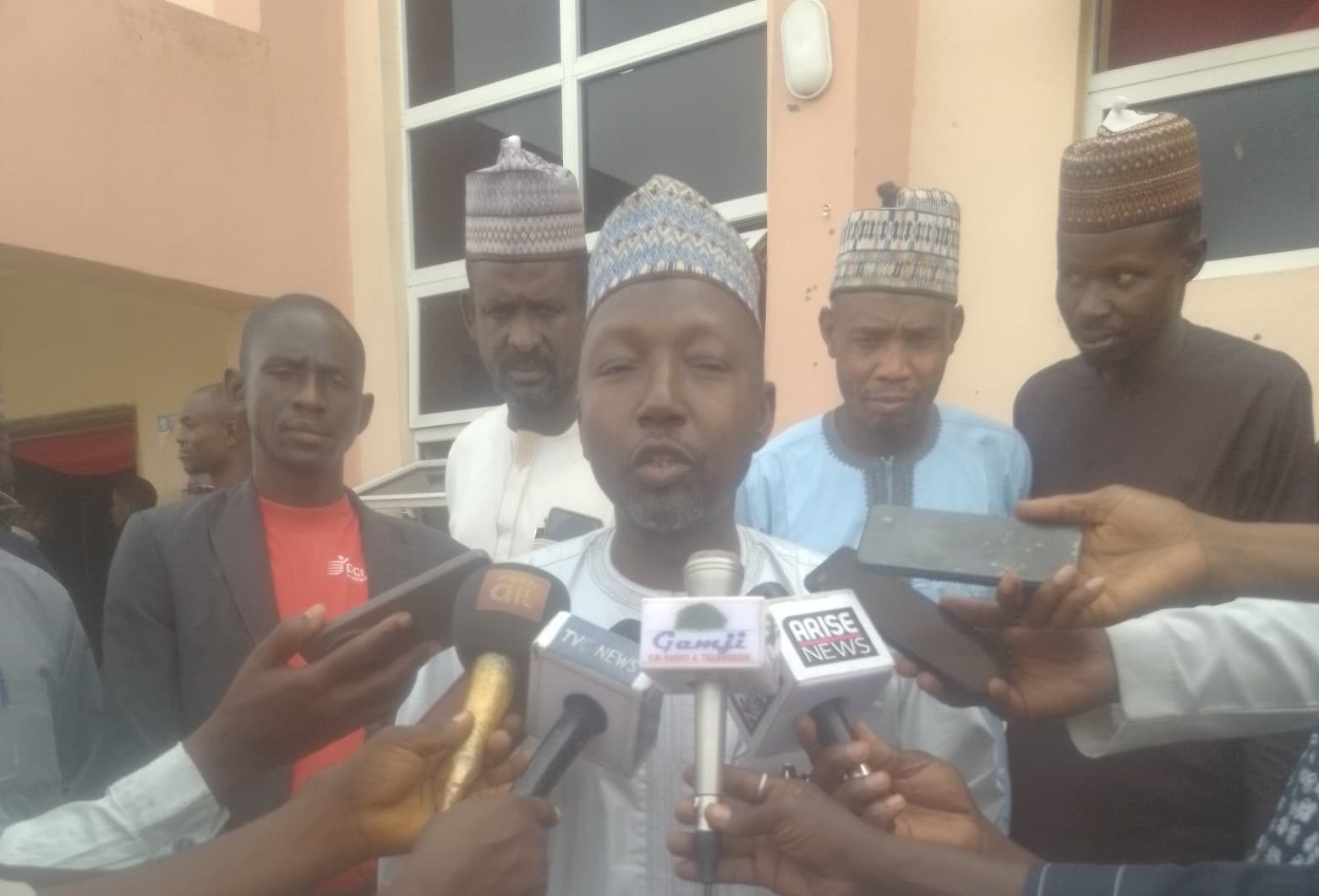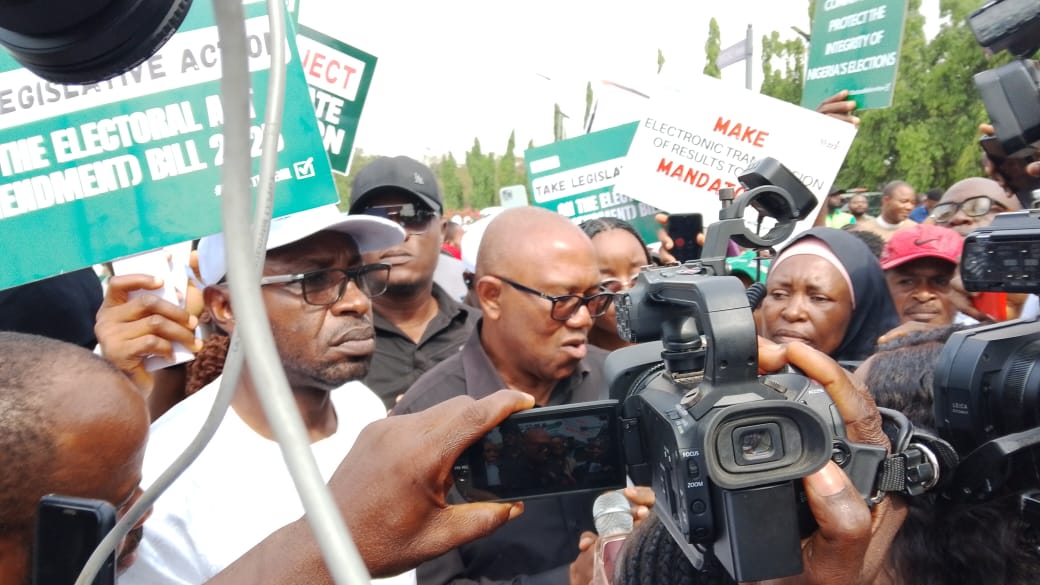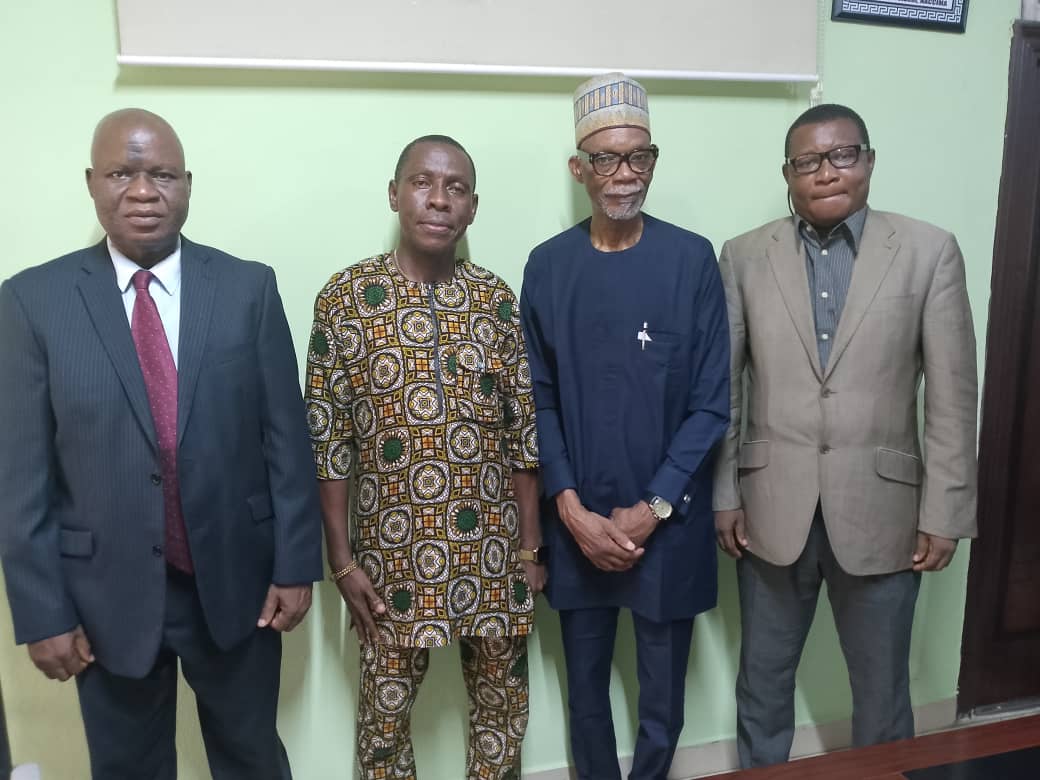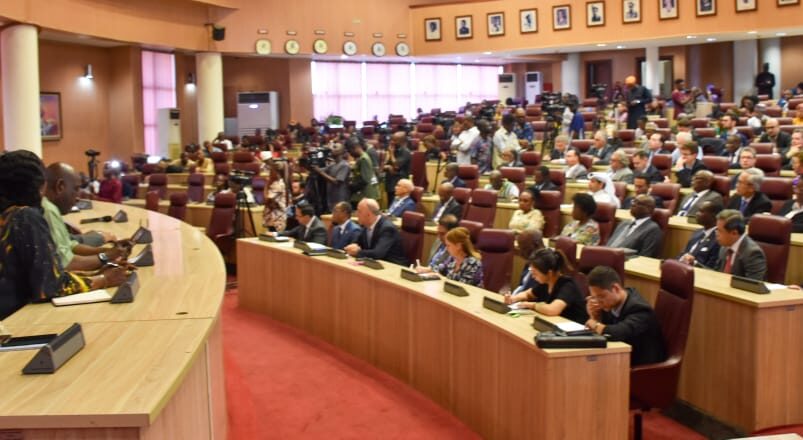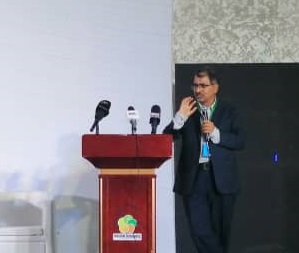By: Goodluck E. Adubazi, Abuja.
The Federal Ministry of Foreign Affairs has reaffirmed that Nigeria’s Constitution, judicial system, and security institutions remain the country’s strongest safeguards against sectarian violence and intolerance.
The Permanent Secretary of the Ministry, Ambassador Dunoma Ahmed, made this declaration on Wednesday during a special briefing with members of the Diplomatic Corps at the Rotunda Hall, Tafawa Balewa House, Abuja. Representing the Honourable Minister of Foreign Affairs, Ambassador Yusuf Maitama Tuggar, OON, Ahmed stressed that Nigeria is “a resilient and vibrant democracy confronting complex security challenges — not a state of religious persecution.”
He expressed appreciation to members of the international diplomatic community for their continued partnership and understanding as Nigeria undergoes critical political and economic reforms. He highlighted that under President Bola Ahmed Tinubu’s administration, the Federal Government remains committed to transparency, macroeconomic stability, and inclusive national growth through the implementation of bold policy reforms under the Renewed Hope Agenda.
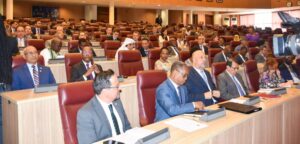
According to him, the unification of the foreign exchange market, removal of fuel subsidy, and increased oil production have boosted investor confidence and macroeconomic stability. Proceeds saved from subsidy removal, he said, are being redirected to social welfare, education, and infrastructure projects—benefiting vulnerable Nigerians through initiatives like the Renewed Hope Conditional Cash Transfer and the Infrastructure Support Fund for States.
Ambassador Ahmed further revealed that Nigeria’s crude oil output has surpassed 1.6 million barrels per day, with the nation’s refineries in Port Harcourt, Warri, and Kaduna undergoing full rehabilitation, alongside the operations of the Dangote Refinery. He added that the Federal Government’s diversification efforts in agriculture, mining, and the digital economy are already yielding results, as the nation’s creative and tech industries continue to attract global investment.
On security, the Permanent Secretary emphasized that the Tinubu administration has adopted a holistic approach combining military operations, intelligence, diplomacy, and community engagement to restore peace and order across the country. He referenced ongoing security operations such as Hadin Kai and Lake Sanity as part of the government’s sustained efforts to combat insurgency.
Dismissing claims by some international observers about systemic religious persecution in Nigeria, Ahmed described such allegations as “misinformed and inconsistent with Nigeria’s secular and constitutional reality.” He reaffirmed that the 1999 Constitution guarantees freedom of thought, conscience, and religion, adding that interfaith bodies like the Nigerian Inter-Religious Council (NIREC), the Christian Association of Nigeria (CAN), and the Supreme Council for Islamic Affairs (NSCIA) continue to promote peaceful coexistence.
He called on the international community to engage Nigeria constructively and base their assessments on facts rather than perceptions. “Nigeria stands as a beacon of peace, stability, and progress in Africa. We will continue to strengthen our cordial relationships with your countries and organizations in the pursuit of global peace and prosperity,” he concluded.



